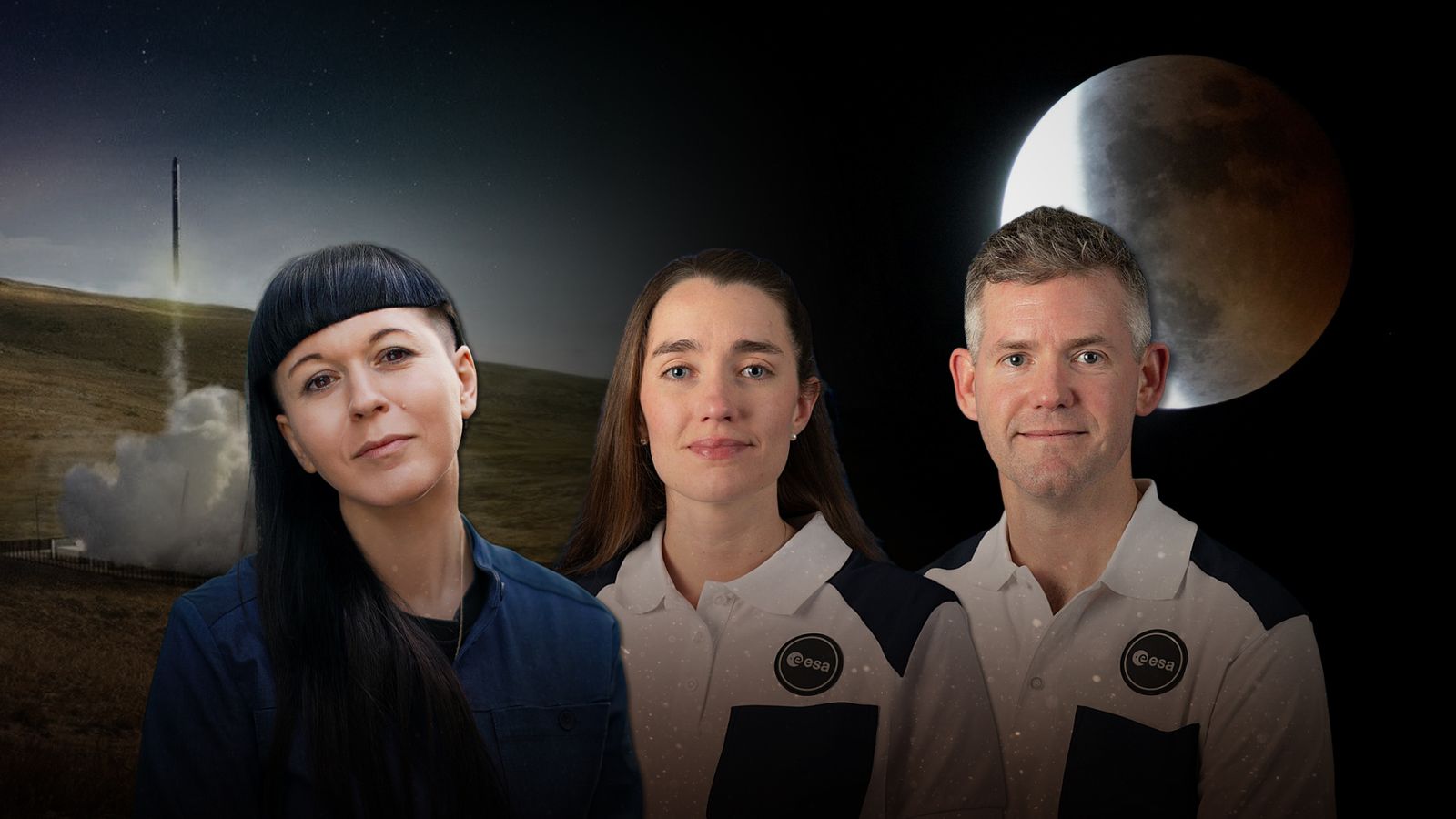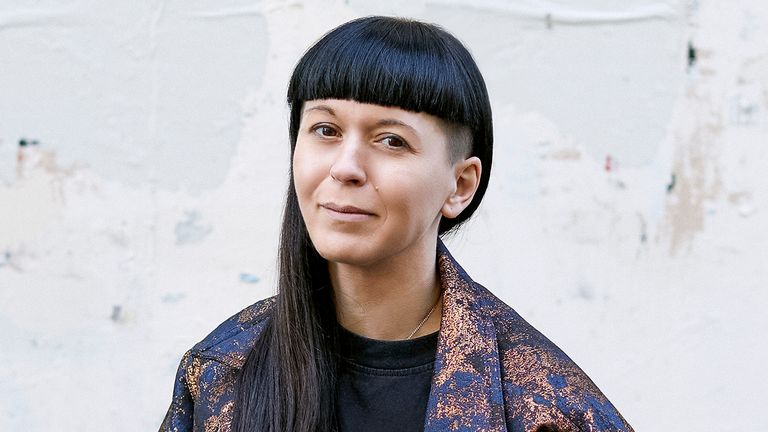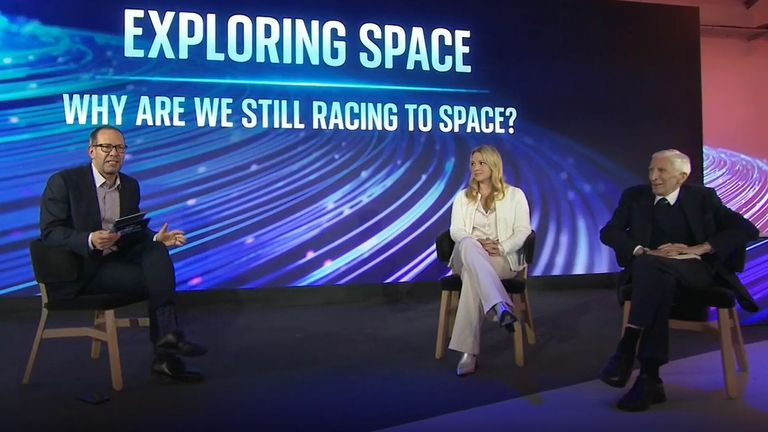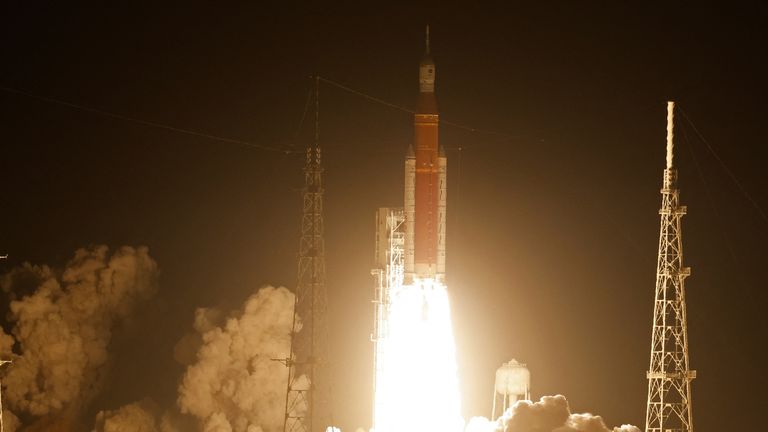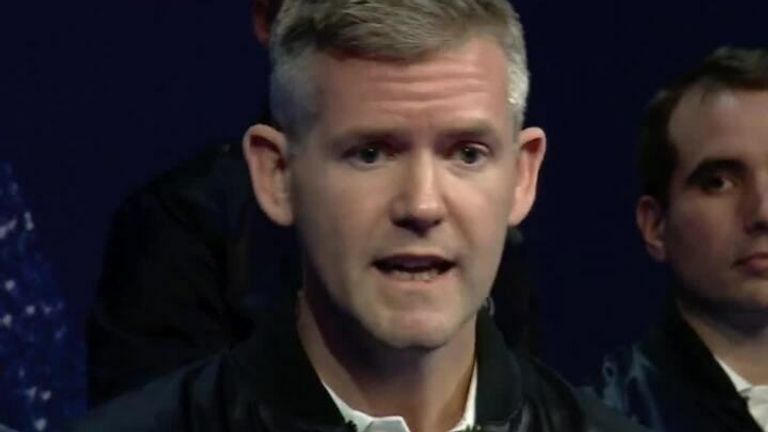Think of all the things you stumble across while aimlessly scrolling social media, and the height of any excitement would likely be spared for a good online shopping deal or a funny meme your dad would like.
For most of us, the possibility we might see an opportunity that would take us into space would seem unlikely.
But that’s exactly what happened to Rhiannon Adam, a photographer who in 2023 will become the first British and openly queer woman to travel to the moon.
She’s one of several explorers set to help make it a massive year for the UK’s presence among the stars, as our collective fascination with the final frontier climbs to heights not seen in decades.
‘Never in a million years would I think this could happen’
Of all the reasons to be excited about the coming year for space travel, nothing reflects the wonder it would have inspired among so many of us during our lives quite like the upcoming journey of Ms Adam.
“Never in a million years did I think I would ever be going to space,” she told Sky News.
“When you are a kid, looking up at the sky, having all these constellations explained to you, and trying to find your place in the world, you do dream.
“But it was always just fantasy. I watched Star Trek, but never would I think it could happen.”
How did the opportunity come about?
The 37-year-old’s space trip involves a seven-day flight to the moon, which the craft – dubbed Starship – will orbit before coming back to Earth.
She was one of eight artists picked to be in the all-civilian crew by Japanese billionaire Yusaku Maezawa as part of dearMoon, a mission aboard a rocket developed by Elon Musk’s SpaceX.
Ms Adam was picked after applying in March 2021, having stumbled across others doing so on social media.
Another photographer on the team is UK-born Karim Iliya, who has had work published in National Geographic.
“This experience will be pushing my own practice into a new direction,” said Ms Adam.
“The possibility to engage with science, and bridge that gap between art and science, is really exciting.”
Who’s leading the charge for Britain in space?
What’s most notable about Britain’s role in space exploration is the role of women.
As 2022 wound down, the country’s first ever rocket launch was being overseen by Melissa Thorpe, the head of Spaceport Cornwall.
“It’s been such a rollercoaster ride,” the Canadian native told Sky News ahead of the historic event, which was pushed back from an early to mid-December launch.
“We’re really proud of what this about to do for the UK.”
Another milestone has seen Rosemary Coogan, an astrophysicist from Northern Ireland, selected as only the UK’s third ever astronaut.
Before her were Helen Sharman, who became the first Briton in space in 1989, and Tim Peake, who performed a historic spacewalk 27 years later.
Ms Coogan was among the European Space Agency’s (ESA) first new astronauts since 2009, and will spend 2023 undertaking vigorous training for a future mission.
“It was a real privilege to get the call – I was incredibly excited,” she said.
“So many people applied, and I feel extremely lucky to be in this position and really want to make the most of this opportunity to learn as much as I can and give as much as I can.”
‘History hasn’t been on our side’
The role of women in space travel is part of an international trend set to be taken to the lunar surface by NASA’s Artemis mission, which is aiming to put a woman on the moon for the first time.
For Ms Adam, being part of an increasing number of women playing a very visible role in space is an honour.
“It’s really important women are seen to be doing these things,” she told Sky News.
“So often women don’t apply for things, history hasn’t been on our side. And as a queer person, it has been an extremely difficult time – there are so many places around the world where my existence is illegal.
“So hopefully this opportunity can help inspire others that they can be seen and heard for who they are, and that they don’t have to hide in the shadows.”
Former Paralympian’s ‘inspiring’ opportunity
Speaking of history, another British astronaut is making just that in 2023.
Former Paralympian John McFall will join Ms Coogan in training after becoming the ESA’s first disabled astronaut, hailing the opportunity as “inspiring and exhilarating”.
While he’s getting ready to go into space, back home the UK will be gearing up for further launches of its own.
Hoping to follow the fabulously named Start Me Up mission from Cornwall are launches from Scotland, specifically Sutherland and Shetland.
These will be NASA-style vertical spectacles, rather than the jet-like horizontal take-off of Cosmic Girl, but with only satellites for cargo, it’s mere British ingenuity being carried rather than any Britons themselves.
It’s likely just the dearMoon mission doing that in 2023, though it’s a different flag that Ms Adam will be flying.
Born in Cork, it’s the Irish tricolour that she’s chosen to fly high above the Earth instead.
“It’s built in the Irish spirit to be adventurous,” she says, and nobody would argue with that.
